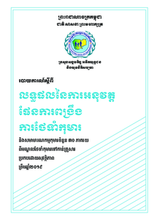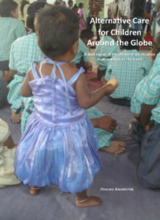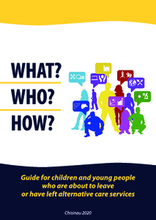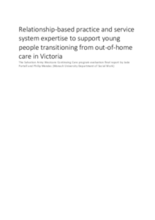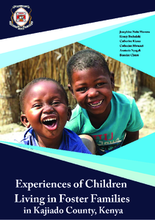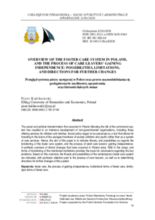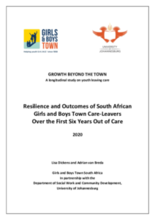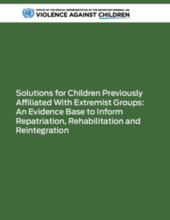Displaying 351 - 360 of 991
This report (in Khmer) presents the outcomes of the implementation of the Action Plan for improving child care with the target of safely returning 30 per cent of children in residential care to their families, including key achievements, lessons learned, and recommendations going forward.
This report is the culmination of almost four years of research. It gives an overview of the child protection situation in all 195 autonomous countries in the world.
The Trainers Package is primarily for Government of Rwanda Child Protection and Welfare Officers, representatives of the NCPD and others who work directly with children and families on reintegration of children, including children with disabilities, from residential institutions to family care. It can also provide useful information to people working in other local government roles, for example District Disability Mainstreaming Officers and Gender &
Family Promotion Officers, as well as people working in non-governmental organizations (NGOs) or community based systems (for example, Inshuti z’Umuryango - Friends of the Family) who support children and families, and particularly those who have contact with children during the reintegration process.
This guide is for children and young people who are about to leave or have left alternative care services and provides life skills resources and advice targeted to this group. Government institutions, non-profits, civil society, and other actors supporting this group are encouraged to print and distribute this resource to them.
This is the final report of the evaluation of the Salvation Army Westcare Continuing Care Program, which aimed to provide relationship-based support to assist the planning, preparation and support needs of young people during their transition from out-of-home care (OOHC) to independent living.
This paper reports findings from an innovative arts-based intervention with Looked After Children and Young People and concludes that holding these competing value sets in creative tension is central to the success of the programme in helping young people to cope with and contest social harm.
This study adopted a phenomenological research design, purposively sampling 26 preteens and teenagers living, during the school term, in a Charitable Children's Institution (CCI) that doubles up as their School and then moving to live with foster families during the school holidays. The focal areas of the field study were the young people's experiences in the CCI, the transition to the foster families, and the young people's experiences in foster care.
The aim of this paper is to indicate threats and possibilities as regards the functioning of the foster care system and the process of adult care leavers’ gaining independence.
This report presents the latest findings from the Growth Beyond the Town Girls and Boys Town South Africa (GBTSA)/University of Johannesburg (UJ) joint partnership longitudinal research study. Presented are the findings from 150 participants who were interviewed as they disengaged from GBTSA, as well as the outcomes of many of these care-leavers that have been measured each year during follow-up interviews.
This report from the UN Office of the SRSG on Violence against Children explores repatriation, rehabilitation, and reintegration of foreign, Iraqi and Syrian children who are being held in detention on suspected ISIS association or terror-related offenses, or in camps.

